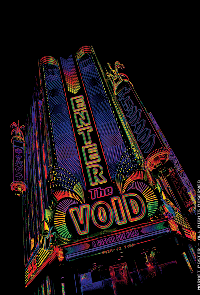 Back to selection
Back to selection
CANNES SNAPSHOTS: TARANTINO, NOE, HANEKE
 A lack of wireless, fatigue, and my dislike of netbooks (particularly the kind in the American Pavilion) have curtailed my Cannes posting. I have no idea how Eric Kohn, Matt Dentler, Allison Willmore and the trade reviewers get their well considered reviews up so quickly after their screenings. That said, I’ll try to have my thoughts on the handful of films I saw up when I get back to Paris tomorrow. Very quickly, though, Gaspar Noe’s Enter the Void is disquieting and dreamy, as much a psychologically charged immersive space as it is a conventional film narrative. Noe’s decadent Tokyo riff on the Tibetan Book of the Dead is structured around births, a death, and finds its twists through hypnotic tracking shots, strobe-lit effects and vertiginous clockwheeled pans. The film conceives its own sense of filmic structure, which makes the criticism that it’s too long a bit puzzling to me. In that the consciousness of the protagonist becomes largely inaccessible to the viewer in the film’s second half, I suppose this section is challenging, but to me that’s where its eeriest psychological moments are. I liked it a lot.
A lack of wireless, fatigue, and my dislike of netbooks (particularly the kind in the American Pavilion) have curtailed my Cannes posting. I have no idea how Eric Kohn, Matt Dentler, Allison Willmore and the trade reviewers get their well considered reviews up so quickly after their screenings. That said, I’ll try to have my thoughts on the handful of films I saw up when I get back to Paris tomorrow. Very quickly, though, Gaspar Noe’s Enter the Void is disquieting and dreamy, as much a psychologically charged immersive space as it is a conventional film narrative. Noe’s decadent Tokyo riff on the Tibetan Book of the Dead is structured around births, a death, and finds its twists through hypnotic tracking shots, strobe-lit effects and vertiginous clockwheeled pans. The film conceives its own sense of filmic structure, which makes the criticism that it’s too long a bit puzzling to me. In that the consciousness of the protagonist becomes largely inaccessible to the viewer in the film’s second half, I suppose this section is challenging, but to me that’s where its eeriest psychological moments are. I liked it a lot.
Inglourious Basterds (did I spell that right) is Quentin Tarantino’s most personal-feeling movie, an ambitious meditation on the myth-making abilities of cinema and the responsibilities inherent in being a film director. It is a bit oddly shaped — here the “too long” critique might be right — but the film is boldly conceived and audaciously executed. I liked it a lot and am still digesting its heady riffs on ’30s and ’40s cinema; two friends I was with thought it was Tarantino’s best movie.
Michael Haneke’s The White Ribbon is precisely and perfectly made, an austere portrait of a small German town and some malicious goings-on in the years just prior to World War 1. I found its grimness enervating, however, and was put off by Haneke’s stoic refusal to make the film’s mysteries either more suspenseful or more mysterious. The targets of Haneke’s critique seemed liked straw men to me. And while the single historical event referenced midway through the film gives the film much-needed context, it also plants the suggestion that The White Ribbon might just boil down to being a dramatically questionable take on the seeds of the 20th century German character.
I’ll flesh out the above in the next few days and also have some thoughts on the festival as a whole and the market this year from the POV of the American independents here.
